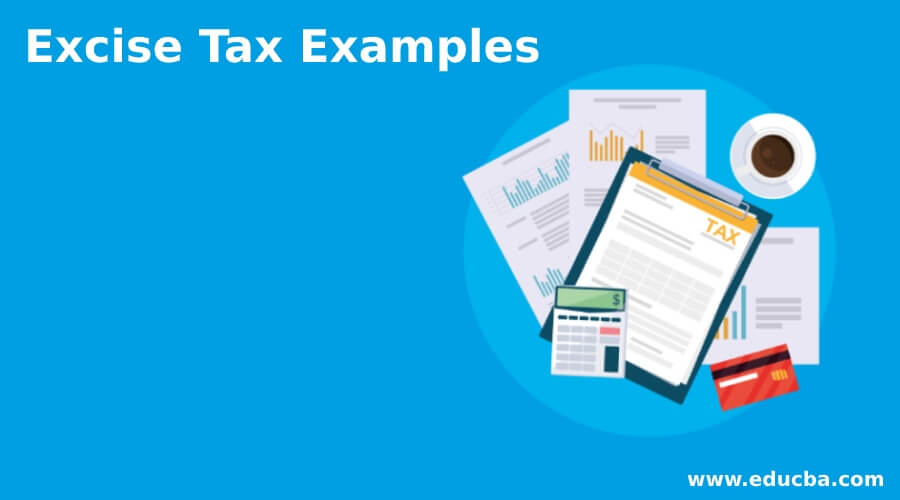Updated July 18, 2023

Definition of Excise Tax Examples
Excise tax is an indirect tax included in the price of certain goods paid at the time of purchase of those goods. Excise tax is levied within the country i.e. it is an intra-national tax and, therefore, not imposed across national borders.
The goods on which excise tax is paid include tobacco, gasoline, airline tickets, and other goods & services. Federal, state, and local governments all have the authority to levy an excise tax on the merchants, who then transfer the tax burden to their customers as an addition to prices.
Explanation
Excise tax comes under indirect taxes since the merchants or vendors pay it and then passed on to the customers through higher purchase prices. It is a business tax since businesses need to pay excise taxes apart from the income tax to the relevant authorities. Businesses needing to file excise tax returns need to file them through Form 720 federal excise return quarterly with quarterly payments. There are some excise taxes like property taxes and excise tax penalties on retirement accounts that the customers can directly pay to the internal revenue service.
Excise taxes can be charged in two ways ad valorem and specific. Ad valorem (a Latin phrase meaning “according to value”) excise tax is charged as a fixed percentage of the product’s price. In contrast, a specific excise tax (per unit tax) is a fixed dollar amount included in the purchase price of certain goods. The major portion of excise tax revenue in the U.S. comes from tobacco, motor fuel or gasoline, alcohol, health-related goods & services. Some goods have high social costs, like cigarettes and alcohol, and the government also levies an excise tax on these goods. Taxes on these goods are sometimes called sin taxes.
Examples of Excise Tax
Here are some examples of the excise tax. In the first two examples, one example is for calculating each ad valorem tax type and specific excise tax type. In the third example, we will refer to other goods and services on which Internal Revenue Service levies excise tax with the tax rate.
Example #1
Suppose the internal revenue service levies 10% on Good A and 15% on Good B. Prices charged by the merchant before taxes for Good A were $100, and Good B was $ 200. How much excise tax was paid?
Solution:
Merchants will pay $ 10 on good A (10 % of $100) and $30 (15% of $200) on good B as an excise tax. This is an example of an ad valorem type of excise tax since the tax is being levied as a percentage of the value of goods.
Example #2
Customer A buys a pack of cigarettes; the original cost before taxes was $4. Now suppose the New York State levies the specific excise tax of $4.35 per cigarette pack irrespective of the original price of the packet, and there is an additional federal excise tax of $1.01. What shall be the value of the pack in this case, and what shall be the excise tax?
Solution:
The final cost of a pack of cigarettes would be ($4+$4.35+$1.01) = $ 9.36 inclusive of excise tax of $5.36.In this case, the federal and state governments impose a specific tax on a pack of cigarettes. The federal government imposes $1.01, while the state imposes $4.35. This is an example of a specific type of excise tax.
Example #3
Similarly, other types of ad valorem excise tax might be there for different types of products and services, such as:
- firearms (10%)
- airline ticket (7.5%)
- heavy trucks (12%)
Further, there may be specific excise tax for some items such as:
- cigarettes ($1.01 on the pack of 20 cigarettes)
- pipe tobacco ($2,83 per pound)
- beer ($7 for the first 60,000 barrels), and so on.
Example #4
Let us assume that the original price before tax for a barrel of beer at a liquor shop is $650; now, as we have read in example 4, the IRS levies $7 for the first 60,000 barrel. Let’s assume the store is still under the limit of 60,000 barrels. What shall be the cost per barrel of beer after the levy of excise duty?
Solution:
The cost after excise tax per barrel would be:
$650+$7 = $ 657 per barrel.
Conclusion
As we have discussed, merchants pay the excise tax, but the customers bear the burden through higher purchase prices. Further, there are two categories of excise tax, namely ad valorem (according to value) i.e. a fixed percentage of the purchase price of the good, and specific (per unit tax) fixed dollar price tax on the product irrespective of its purchase price.
Recommended Articles
This is a guide to Excise Tax Examples. Here we also discuss the definition and examples of excise tax and an explanation. You may also have a look at the following articles to learn more –


